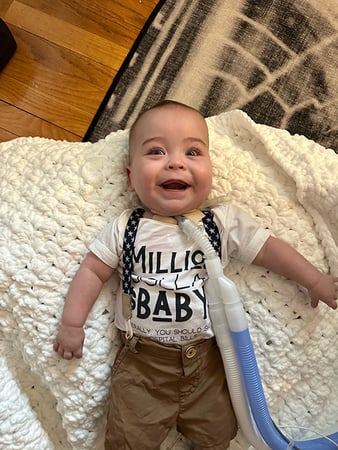Nationally ranked: The Tracheostomy/Home Ventilator Program is part of the Division of Pediatric Pulmonary and Sleep Medicine, which has been named among the nation's best in U.S. News & World Report's since 2018.
A pioneering program: We have treated more than1,000 children with tracheostomies since the inception of our program in 1984. Our program was one of the first in the country to discharge children to home on a ventilator. We currently care for more than 150 children living in the Midwest. Our program developed an educational manual and multiple teaching videos for parents and caregivers who care for a child with a tracheostomy.
The family experience: We believe that trust, education and open communication are the key components to building strong relationships with children and their families, especially when a tracheostomy is first being discussed.
Large, multidisciplinary team: We have a multidisciplinary team that works closely with each child and his or her family. Team members include a pulmonary physician, otolaryngologist, respiratory care practitioner, social worker, speech therapist and case manager. A trach/vent nurse is assigned to work with the family to manage and coordinate both inpatient and outpatient care.
Wrap-around care: All families and caregivers participate in a training program to prepare them to care for their child with a tracheostomy at home. Home care nurses receive ventilator training certification by our respiratory and nursing staff as required by the state of Wisconsin to care for a child on a home ventilator. We work closely with school nurses and educators to facilitate the child's transition back to school. Our speech therapists educate and share information with local community speech therapists to promote effective therapy plans to care for a child with a tracheostomy. We contact local EMS services and energy companies alerting them that a child is on a ventilator in their area.






